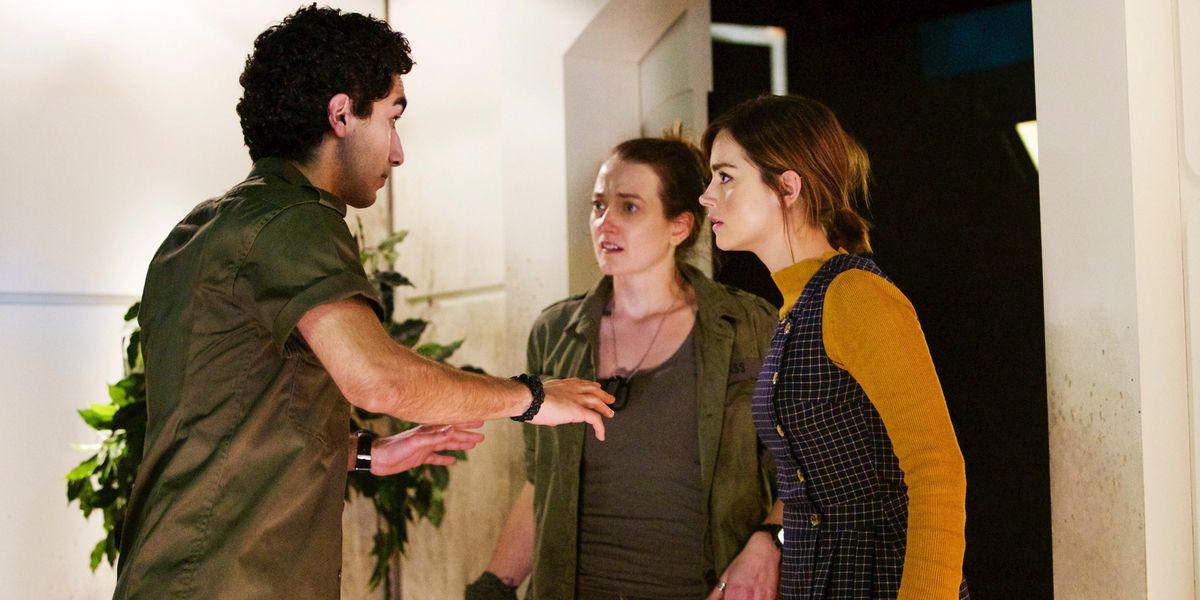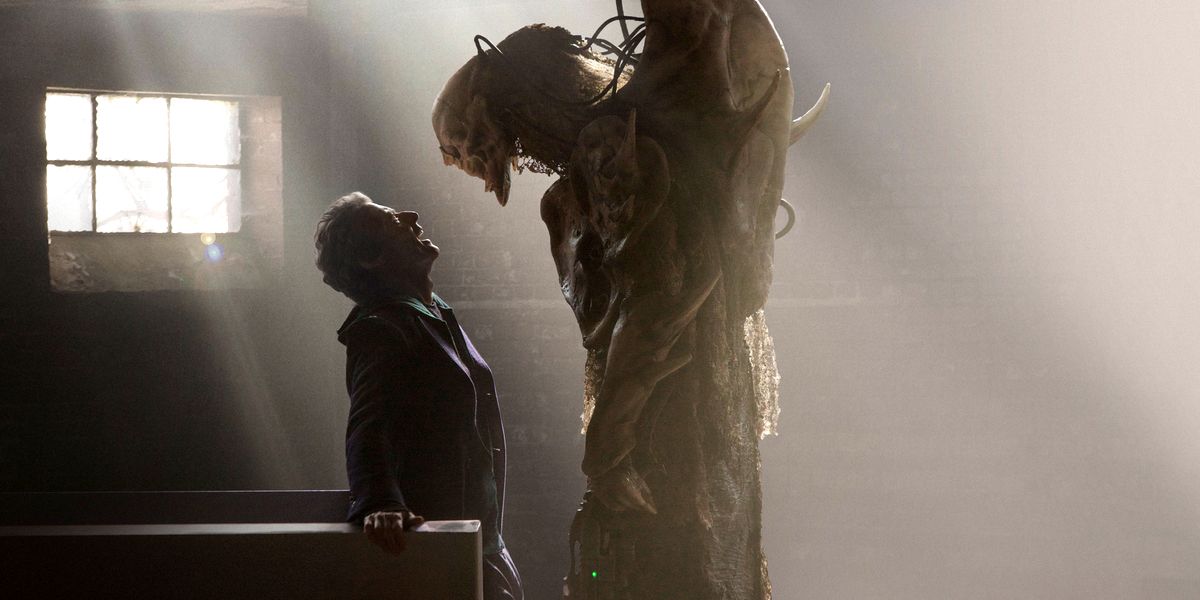[This is a review of Doctor Who season 9, episode 4. There will be SPOILERS.]
-
While it makes sense, given the way season 8 wrapped up, for Doctor Who season 9 to begin by bringing the viewer up to speed along with its characters. And in that sense, 'The Magician's Apprentice/The Witch's Familiar' made for a fine if not wholly convincing start to the season. It's a shame, then, that the contextual requirements of the season opener weren't less strict, allowing the far more fun and less practical combo of 'Under the Lake' and this season's early standout, 'Before the Flood' to have been the two-part storyline on which the series kicked the season off.
There is quite a lot to enjoy about 'Before the Flood'; not the least of which is that it retroactively makes much of 'Under the Lake' feel like more than the typical siege story it actually is. That's not a dig on the previous week's installment, but for all its competence in turning a ghost story into a perplexing puzzle for the Doctor to figure out, it didn't necessarily reach for the same heights as its follow-up episode does. And while 'Before the Flood' may not have been entirely successful in achieving some of the goals it set out for itself, it cannot be faulted for a lack of trying.
For starters, the episode announces itself right off the bat. The Doctor's breaking of the fourth wall is a nice shift from the usual antics that open your average episode. Not only does the discussion on the bootstrap paradox, along with a Time Lord-y inquiry into who wrote Beethoven's Fifth, feel right at home in a Doctor Who episode, the monologue is given extra energy from Capaldi's performance, itself aided considerably by a lack of the shrugging that has lately underlined less overt attempts to address the audience directly.
The opening was also marked by the appearance of the Doctor's electric guitar, the playing of which bleeds into a rock version of the title sequence that is sure to have fans taking a firm stance either for or against the change (regardless of whether or not it is temporary). And while these various elements offer up a bit of intrigue as to how they are going to relate to the narrative of the surviving crewmembers of the underwater facility, the opening seems most adept at offering Peter Capaldi a chance to further define his version of the Doctor. Love them or hate them, the Doctor's new Sonic Sunglasses are at least in keeping with rock 'n' roll motif increasingly being presented here.
The opening sequence may set the groundwork for what's to come, but it's really the rest of the episode that makes 'Before the Flood' a standout. Removed from the larger context of the series, the episode makes great use of the supporting characters, introducing two love stories that not only work as strong emotional beats for Lunn, Cass, O'Donnell, and Bennett, but also underlines the detachment of the Doctor and raises an interesting question regarding the level of his responsibility for O'Donnell's death. It's one that is addressed directly, through Bennett's dressing down of the Doctor, after he realizes his "ghost" from the future may actually be a message from himself. And while all of the various time-travel paradox stuff is compelling to contemplate, and often composed brilliantly within the episode itself – the Doctor realizing he's stuck in his own timeline, and struggles to prevent Bennett from warning Prentis or O'Donnell of their pending deaths is handled with great care – it’s the question of the Doctor and Clara's methods that elevate the episode above the usual sort of fare.
That isn't to say 'Before the Flood' is entirely successful in raising such questions. It actually does so in a way that really only scratches the surface, suggesting that the Doctor's approach to this situation is to ensure the lives of many, and in doing so he and his companion are willing to gamble with an individual's life. This is seen when the Doctor is rightly accused of allowing O'Donnell to perish in order to prove a theory that his "ghost" is actually sending him a message and to warn him Clara's next. It is the same thing when Cass admonishes Clara for putting Lunn's life in danger, exploiting the fact he never actually laid eyes on the Fisher King's writing.
The surface-level exploration of the Doctor and Clara's motivations is mostly forgiven, though; on the grounds those elements may yet prove to be part of each character's larger story this season. It will become increasingly important for Doctor Who to grant Clara's story a certain distinction and emphasis, now that it is confirmed season 9 will be her last. But the episode is also granted extra dispensation for the fact that the plotting is very well done, and there is so much about 'Before the Flood' to like.
From the introduction of the time paradox, to the look of the Fisher King, the episode has a great deal going for it. But perhaps what works the best is the way the Doctor takes on a more active role in the narrative. That is to say, the character felt slightly more vulnerable than he did in the season's first two episodes. While he ostensibly worked his way out of an impossible situation, defeating a powerful foe in the process, there was a brief sense that it wasn't always all going according to plan. It may have been that the Doctor was on to his own ruse (paradox and all) before anyone else, but that doesn't preclude the episode from attempting to make the Doctor feel more susceptible and therefore accessible.
If anything, 'Before the Flood' should be commended for being willing to toy with certain ideas, and for exposing a confounding truth involving its protagonists that might afford the season an interesting avenue to explore.
-
Doctor Who continues next Saturday with Maisie Williams in 'The Girl Who Died' @9pm on BBC America. Check out a preview below:
Photos courtesy of BBC America



